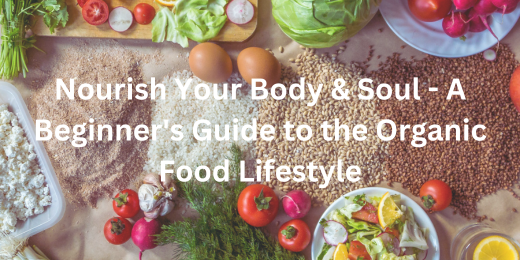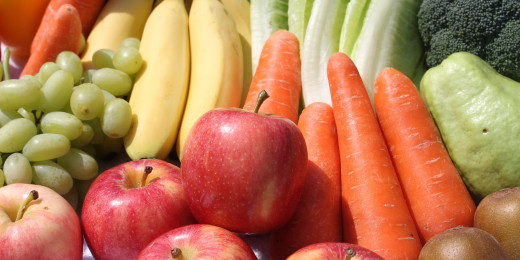
Nourish Your Body & Soul – A Beginner’s Guide to the Organic Food Lifestyle
Organic food lifestyle
Understanding Organic Food
Organic food lifestyle is more than just a trend; it is a conscious choice towards healthier living. Understanding organic food begins with recognising its definition: produce grown without synthetic pesticides, fertilisers, or genetically modified organisms. Importance of organic certification assures consumers that products meet stringent standards, fostering trust and transparency in the market.
Key benefits of organic food products are manifold. Not only does it reduce exposure to harmful chemicals, but it also promotes environmental sustainability by supporting eco-friendly farming practices. Additionally, organic foods often boast higher levels of nutrients and antioxidants, enhancing overall health and well-being.
For beginners, delving into the organic food lifestyle may seem daunting, but it is a rewarding journey. Start by incorporating small changes into your diet, such as opting for organic fruits and vegetables. As you become more accustomed, explore other organic options like meat, dairy, and pantry staples. With time and dedication, embracing organic food for beginners can lead to a more vibrant and nourishing way of life.
Making the Transition
Transitioning to an organic food lifestyle requires a mindful approach. Start by evaluating your current eating habits to identify areas where you can make healthier choices. Incorporate organic food gradually into your meals, focusing on fresh produce, whole grains, and lean proteins for a balanced diet.
For beginners, the prospect of shifting to organic food can be overwhelming. However, it is essential to start small and build from there. Experiment with simple recipes using organic ingredients and gradually expand your repertoire. Remember, every step towards a more organic lifestyle contributes to your overall well-being.
When it comes to shopping for organic food, it is possible to stay within a budget. Look for discounts, coupons, and sales on organic products. Additionally, consider joining a community-supported agriculture (CSA) program or growing your own produce to save money while enjoying the benefits of organic food.

Exploring Organic Options
Organic food lifestyle embraces a natural approach to consuming food, prioritizing produce grown without synthetic pesticides or fertilizers. Benefits of organic food include higher nutritional value and reduced exposure to harmful chemicals. For organic food beginners, starting with fresh fruits and vegetables offers an easy entry point into this healthier lifestyle.
Organic food enthusiasts favour produce grown without synthetic pesticides, believing it offers higher nutritional content. When choosing organic food, consumers reduce their exposure to potentially harmful chemicals commonly used in conventional farming. For organic food beginners, transitioning to organic produce offers a simple yet impactful step towards a healthier diet.
In addition to fruits and vegetables, organic food extends to meat, dairy, and pantry staples. Understanding the origins of organic food ensures consumers make informed choices about what they eat. For organic food beginners, gradually incorporating organic options into daily meals promotes a sustainable and health-conscious lifestyle.
Cultivating an Organic Lifestyle
Organic food lifestyle advocates often stress the importance of supporting local farmers who cultivate produce using sustainable practices. For beginners interested in embracing an organic food lifestyle, starting a small garden at home can be a rewarding endeavour. Engaging with local organic communities and events provides valuable resources and support for those transitioning to this healthier way of living.
The benefits of organic food extend beyond personal health to environmental sustainability and community support. By growing your own fruits and vegetables, you not only ensure their freshness but also reduce your carbon footprint. Participating in organic events allows you to connect with like-minded individuals and gain insights into sustainable living practices.
Whether you are new to the organic food scene or a seasoned enthusiast, cultivating an organic food lifestyle is both fulfilling and impactful. Supporting local farmers, growing your own produce, and engaging with organic communities are essential steps towards a healthier and more sustainable future. Start small, and watch your commitment to organic food flourish.
Addressing Common Concerns
Organic food lifestyle often faces misconceptions, but debunking myths can clarify its benefits. Understanding organic food labels and terms helps consumers make informed choices. Concerns about accessibility and availability are valid, but local markets and community-supported agriculture can offer solutions for sourcing organic products.
Myths surrounding organic food can deter individuals from exploring its benefits. However, labels like “certified organic” guarantee adherence to strict standards, ensuring quality and sustainability. While accessibility might pose challenges, exploring local markets and joining food co-ops can expand options for organic products. You may discover more about organic fertilisers, organic food, and organic farming by visiting your local Uyir Organic Farmers Market. For additional information, visit the websites at www.uyironline.in and www.uyirorganic.farm.
Addressing concerns about organic food availability is crucial for promoting its widespread adoption. By educating consumers on label meanings and supporting local producers, we can overcome barriers to accessing organic products. Together, we can make organic food a viable and accessible option for everyone, regardless of location or income.
Sustaining Your Organic Journey
Organic food lifestyle encourages mindfulness in eating habits, fostering a deeper connection to food and its origins. Beyond nutrition, embracing an organic food lifestyle celebrates its holistic benefits, including environmental sustainability and animal welfare. By making organic choices, individuals contribute to a healthier planet and support long-term ecological balance.
Choosing organic food not only nourishes the body but also respects the planet and its natural resources. Embracing the sustainability of organic choices ensures a healthier future for generations to come, making each meal a conscious act of environmental stewardship.
As we sustain our organic journey, let us continue to celebrate the interconnectedness of all living beings and the earth. Every decision to choose organic contributes to a more sustainable future, where food is not only nourishing but also an expression of our commitment to holistic well-being. Let us cultivate a world where organic food is accessible and celebrated for its positive impact on health, the environment, and communities.